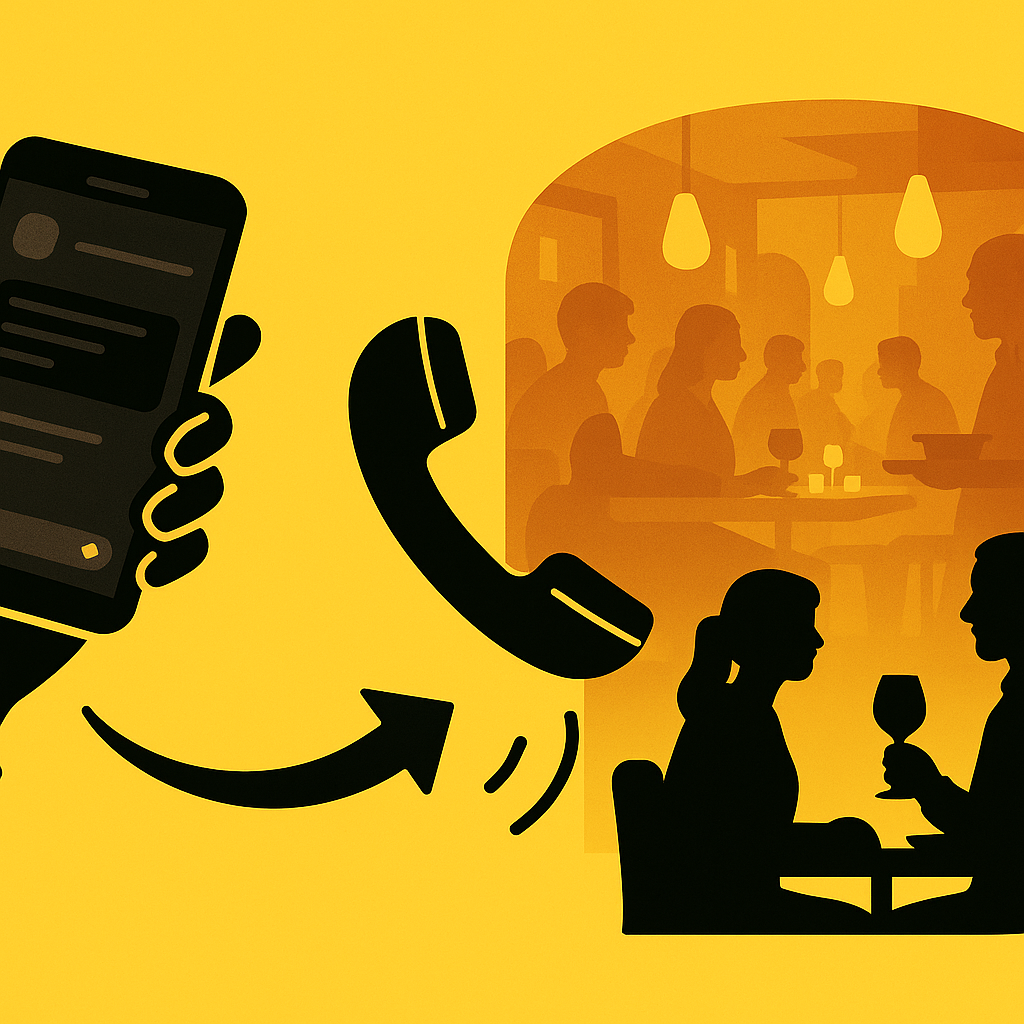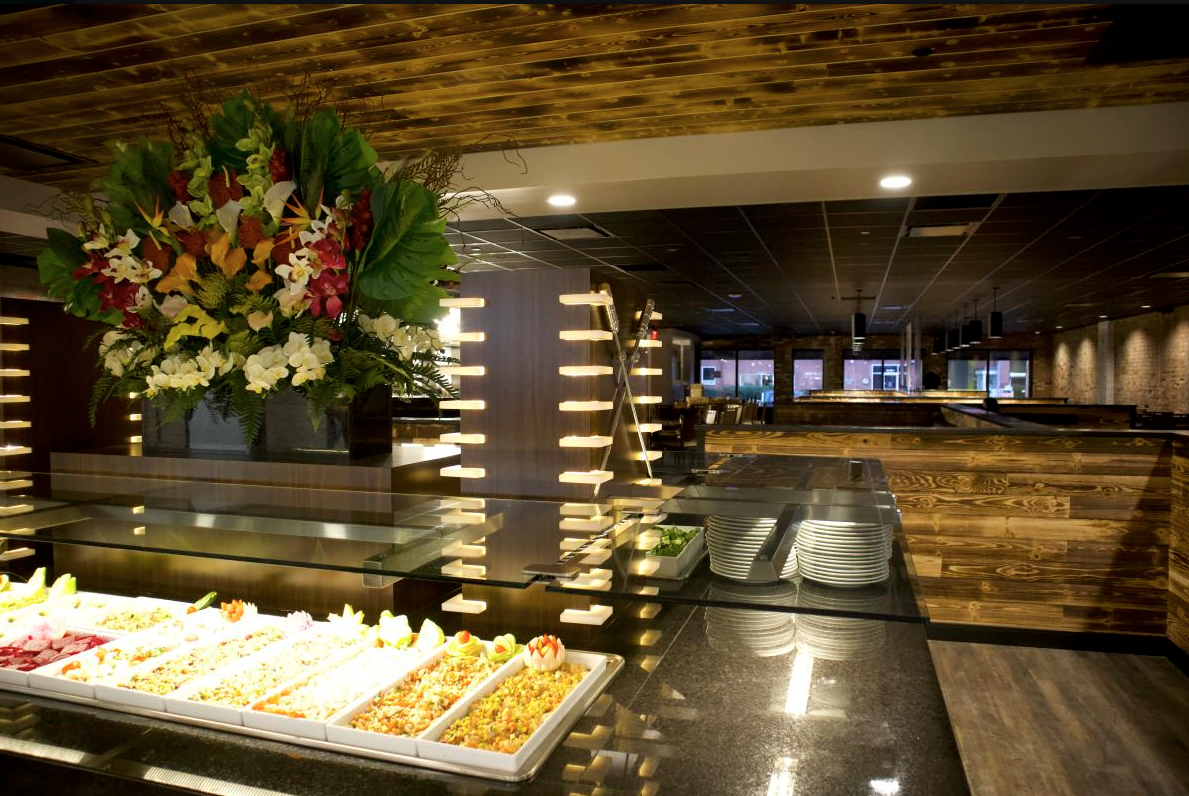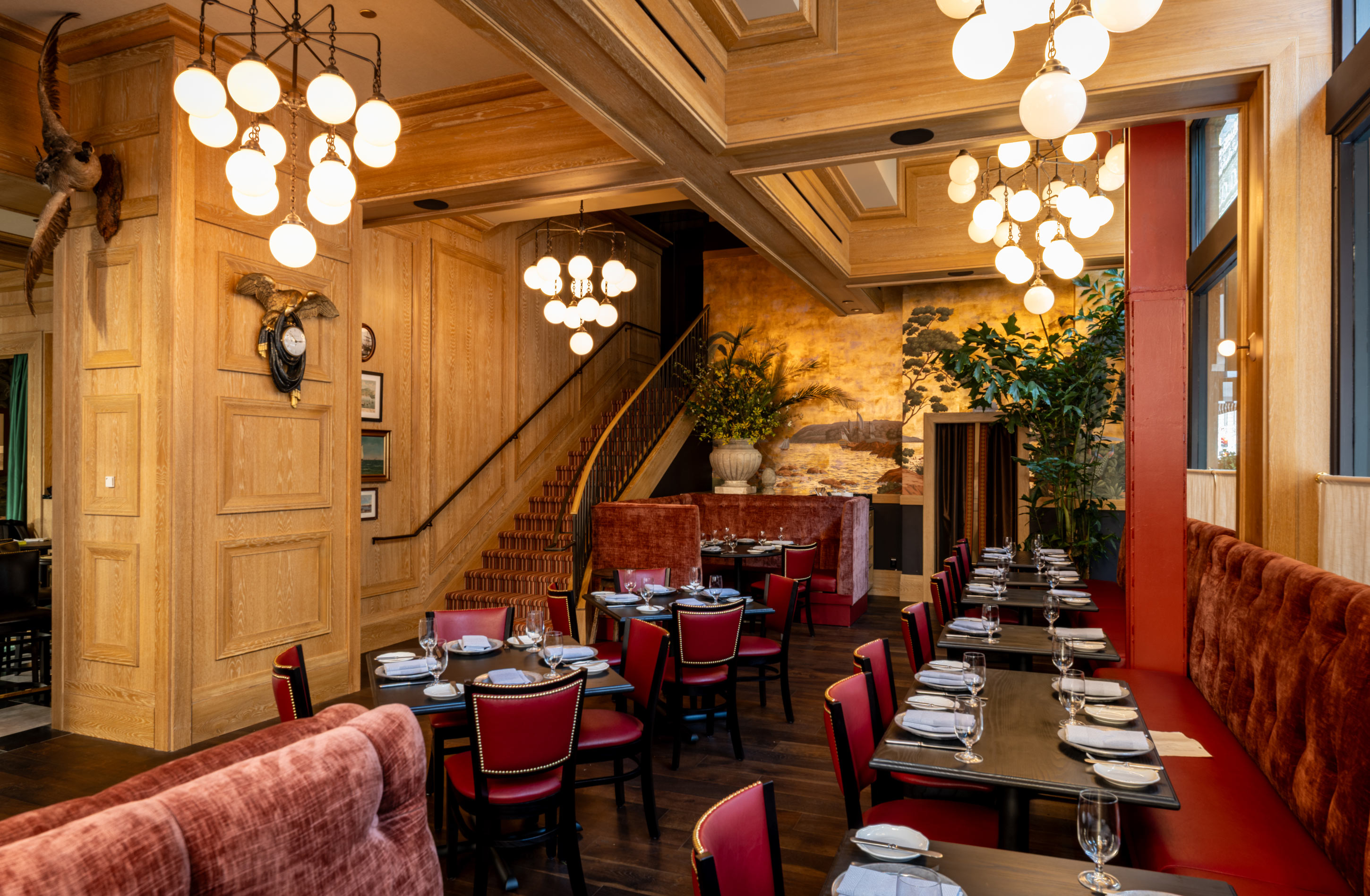
Picture this: It's 7 PM on a Friday night, your dining room is buzzing with the perfect dinner rush energy, and your phone won't stop ringing. But here's the problem—your host is juggling walk-ins, your servers are in the weeds, and those calls? They're going straight to voicemail. According to recent industry research, over two-thirds of Americans would ditch restaurants that don't answer the phone (Hostie AI). That's not just a missed call—that's a missed opportunity, a lost table, and revenue walking out the door.
For Le Petit Jardin, a 70-seat Michelin-recommended bistro in San Francisco's Mission District, this scenario was playing out every single night. With a 43% missed call rate, they were hemorrhaging potential covers and watching their reputation take a hit on review platforms. But in just eight weeks after implementing Hostie AI, they transformed their guest communication entirely—cutting missed calls to just 7% while boosting covers and reallocating precious staff hours back to what matters most: exceptional hospitality.
Le Petit Jardin had everything going for it—a James Beard-nominated chef, a wine program that sommeliers raved about, and the kind of intimate atmosphere that makes diners linger over dessert. But behind the scenes, chaos reigned during peak hours. The restaurant industry has significantly evolved by employing various information and communication technology applications (The Expected Role of Robots), yet many establishments still struggle with basic communication management.
Before Hostie AI, Le Petit Jardin's communication breakdown looked like this:
| Metric | Pre-Hostie Performance |
|---|---|
| Missed Call Rate | 43% |
| Average Hold Time | 3.2 minutes |
| Reservation Conversion | 62% |
| Staff Hours on Phone | 28 hours/week |
| Customer Complaints (Phone-Related) | 15-20/month |
"We were losing money every time the phone rang," explains Sarah Chen, Le Petit Jardin's general manager. "Our host would be on a five-minute call trying to accommodate a complex party of eight, while three other calls went to voicemail. Those voicemails? Half the time, people just hung up and called our competitor down the street."
The restaurant industry faces significant challenges with high call volumes and labor shortages (Smart Service Revolution), making efficient communication systems more critical than ever. For Le Petit Jardin, the breaking point came during a particularly busy Saturday when they missed 23 calls in a single evening—calls that could have represented over $3,000 in potential revenue.
Hostie AI is an AI-driven customer experience platform tailored specifically for the restaurant industry (Hostie AI). Unlike generic call-handling services, Hostie was created by a restaurant owner and an AI engineer, Brendan Wood, who understood the unique challenges of restaurant communication firsthand.
The platform automates handling calls, texts, and emails while managing reservations and takeout orders seamlessly (Hostie AI). What sets Hostie apart is its deep integration with existing restaurant systems—it works with your current reservation platform, POS system, and even event planning software without requiring a complete operational overhaul.
After evaluating several AI communication platforms, including ConverseNow, which handles over 2,000,000 conversations per month (ConverseNow), and Slang AI, which focuses on transforming calls into online ordering opportunities (Slang AI), Le Petit Jardin selected Hostie for three key reasons:
Restaurant-Specific Design: Hostie can handle all kinds of requests from simple reservation changes to complex private event inquiries and complicated order modifications (Hostie AI)
Seamless Integration: The AI integrates directly with tools restaurants are already using—existing reservation systems, POS systems, and event planning software (Hostie AI)
Proven Track Record: After integrating with partner establishments such as Flour + Water and Slanted Door, Hostie now handles over 80% of their guest communications automatically (Hostie AI)
The implementation began with Hostie's team working closely with Le Petit Jardin's management to understand their specific needs. The AI system was trained on the restaurant's menu, policies, and common guest requests. Integration with their existing OpenTable reservation system took just two days, while POS integration with their Toast system was completed by the end of week two.
"The setup was surprisingly smooth," notes Chen. "Hostie's team understood our workflow immediately. They didn't try to change how we operate—they just made it better."
During weeks three and four, Le Petit Jardin ran Hostie in parallel with their existing phone system. Staff received training on monitoring Hostie's call transcript dashboard and learned how to handle escalations when the AI needed human intervention.
The restaurant industry has begun to employ various artificial intelligence techniques to enhance customer experience (The Expected Role of Robots), and Le Petit Jardin's team quickly adapted to working alongside their AI assistant.
By week five, Hostie was handling 100% of incoming calls during peak hours. The AI's multilingual capabilities—it can communicate in 20 languages (Hostie AI)—proved invaluable in San Francisco's diverse dining market.
The transformation was immediate and measurable:
| Metric | Before Hostie | After Hostie (8 weeks) | Improvement |
|---|---|---|---|
| Missed Call Rate | 43% | 7% | 84% reduction |
| Average Hold Time | 3.2 minutes | 0.8 minutes | 75% reduction |
| Reservation Conversion | 62% | 89% | 43% increase |
| Staff Hours on Phone | 28 hours/week | 8 hours/week | 71% reduction |
| Customer Complaints | 15-20/month | 2-3/month | 85% reduction |
The operational improvements translated directly to financial gains:
"The ROI was clear within the first month," explains Chen. "We were capturing revenue we didn't even know we were losing, and our team could focus on what they do best—creating memorable dining experiences."
Perhaps most importantly, staff satisfaction improved dramatically. With Hostie handling routine calls, the front-of-house team could focus on in-person guest interactions. Teams have reported growing customer satisfaction in the dining experience and customer service (Hostie AI).
"Our host went from being stressed and overwhelmed to being the welcoming face our guests deserve," notes head server Maria Rodriguez. "She's not constantly interrupted by phone calls anymore. She can actually greet guests, manage the floor, and ensure everyone feels taken care of."
One of Hostie's most valuable features is its comprehensive call transcript dashboard, which provides Le Petit Jardin's management with unprecedented visibility into guest communications.
The dashboard captures every interaction, categorizing calls by type:
Every call transcript is automatically analyzed for sentiment and satisfaction indicators. The system flags any interactions that might require follow-up, ensuring no guest concern goes unaddressed.
"The dashboard gives us insights we never had before," explains Chen. "We can see patterns in what guests are asking about, identify training opportunities for our team, and even spot menu items that might need better descriptions."
Le Petit Jardin's success with Hostie reflects a broader industry trend. Major restaurant chains are increasingly turning to AI solutions—Dine Brands, the parent company of Applebee's and IHOP, announced plans to implement artificial intelligence in their restaurants to handle customer orders over the phone (Smart Service Revolution).
The technology landscape offers various options, from ChatGPT for restaurants, which can assist in day-to-day restaurant management (ChatGPT for restaurants), to specialized platforms like Loman AI, which serves as an AI phone agent and receptionist for restaurants (Smith AI vs Loman AI).
However, Hostie's restaurant-specific focus and proven track record with establishments like Burma Food Group, which saw a 141% boost in over-the-phone covers (Hostie AI), demonstrates the value of purpose-built solutions.
Le Petit Jardin's success began with clearly defined goals: reduce missed calls, improve reservation conversion, and free up staff time. Having specific, measurable objectives made it easier to track progress and demonstrate ROI.
Rather than implementing AI as a replacement for human staff, Le Petit Jardin positioned Hostie as a tool to enhance their team's capabilities. This approach reduced resistance and improved adoption.
The restaurant used Hostie's analytics dashboard to continuously refine the AI's responses and identify areas for improvement. Regular review of call transcripts helped ensure the AI maintained the restaurant's voice and standards.
While Hostie handles routine inquiries automatically, complex requests and special occasions still receive human attention. This hybrid approach ensures efficiency without sacrificing personalization.
Hostie AI starts at just $199 a month (Hostie AI), making it accessible for restaurants of all sizes. For Le Petit Jardin, the investment paid for itself within three weeks:
| Category | Monthly Cost/Benefit |
|---|---|
| Hostie AI Subscription | -$199 |
| Labor Cost Savings | +$2,400 |
| Additional Revenue (127 covers × $85 avg check) | +$10,795 |
| Upselling Revenue (12% increase) | +$7,705 |
| Net Monthly Benefit | +$20,701 |
Based on eight weeks of data, Le Petit Jardin projects annual benefits of:
Hostie AI has raised a $4M seed round led by Gradient Ventures (Hostie AI), signaling strong investor confidence in AI-powered restaurant solutions. The funding will accelerate product development and expand Hostie's capabilities.
For Le Petit Jardin, the success with Hostie has opened doors to additional AI applications. They're exploring Hostie's text and email management features, which could further streamline guest communications and improve operational efficiency.
"This is just the beginning," reflects Chen. "AI isn't replacing hospitality—it's enhancing it. By handling the routine tasks, technology allows our team to focus on creating the moments that make dining with us special."
Le Petit Jardin's experience demonstrates that AI communication platforms can deliver immediate, measurable results. The combination of increased revenue, cost savings, and improved guest satisfaction creates a compelling business case for adoption.
With proper planning and the right partner, AI implementation can enhance existing operations without requiring major workflow changes. Hostie's integration with existing reservation and POS systems minimized disruption during the transition.
The most successful AI implementations empower human staff rather than replacing them. By handling routine tasks, AI allows restaurant teams to focus on high-value activities that directly impact guest experience.
AI platforms provide unprecedented visibility into guest communications, enabling data-driven decisions about staffing, menu descriptions, and service improvements.
Le Petit Jardin's transformation from a 43% missed call rate to just 7% in eight weeks illustrates the power of purpose-built AI solutions in the restaurant industry. By partnering with Hostie AI, they didn't just solve a communication problem—they unlocked new revenue streams, improved operational efficiency, and enhanced their team's ability to deliver exceptional hospitality.
The restaurant industry continues to evolve, with technology serving as one of the main competitive advantages that shape unique customer experiences (The Expected Role of Robots). For restaurants ready to embrace this evolution, the question isn't whether to adopt AI communication solutions—it's which platform will best serve their unique needs and guest expectations.
As Hostie continues to expand its capabilities and serve more restaurants, success stories like Le Petit Jardin's demonstrate that the future of restaurant communication is here. The result is smoother operations and staff that can focus on their skills—not managing every tiny detail (Hostie AI).
For restaurant operators still watching calls go to voicemail, the message is clear: every missed call is a missed opportunity. But with the right AI partner, those opportunities can become your competitive advantage.
Hostie AI's multilingual assistant Jasmine handled incoming calls 24/7, automatically managing reservations, answering menu questions, and taking orders. The AI integrated seamlessly with their existing reservation system, ensuring no calls went unanswered even during peak dining hours. This reduced their missed call rate from 43% to just 7% in eight weeks.
By capturing previously missed calls and converting them into reservations and orders, Le Petit Jardin saw significant revenue growth. The dramatic reduction in missed calls meant more bookings, higher table turnover, and increased customer satisfaction. The case study demonstrates how AI can directly impact a restaurant's bottom line through improved customer communication.
According to Hostie's research, over two-thirds of Americans would ditch restaurants that don't answer the phone. When customers can't reach a restaurant, they quickly move on to competitors who are more accessible. This creates a direct correlation between missed calls and lost revenue, making phone responsiveness critical for restaurant success.
Hostie AI integrates with major reservation systems and leading POS systems, making implementation seamless for restaurants. The platform handles calls, texts, emails, reservations, and orders through a single AI interface. This integration ensures that all customer interactions are properly recorded and managed within the restaurant's existing workflow.
Hostie's AI assistant Jasmine is multilingual and can communicate in 20 different languages. This capability is particularly valuable for restaurants in diverse markets or tourist areas, ensuring they can serve customers regardless of their preferred language. The multilingual feature helps restaurants capture a broader customer base and provide inclusive service.
Based on Le Petit Jardin's case study, restaurants can see dramatic improvements in just eight weeks. The bistro reduced their missed call rate from 43% to 7% in this timeframe while also improving staff satisfaction and operational efficiency. The quick implementation and rapid results make Hostie AI an attractive solution for restaurants looking for immediate operational improvements.
RELATED


